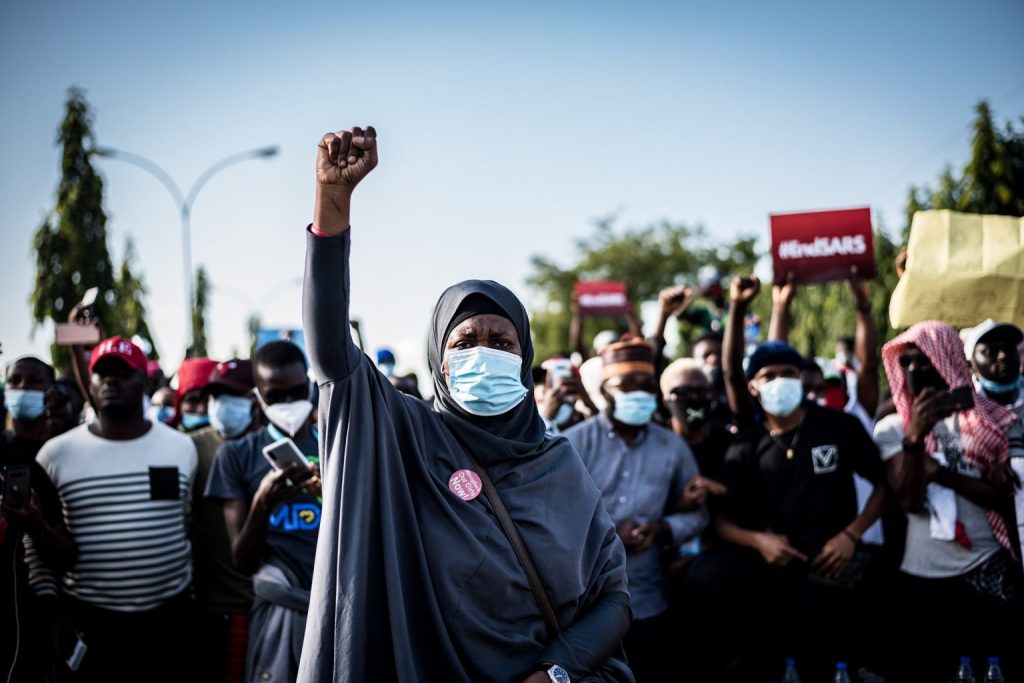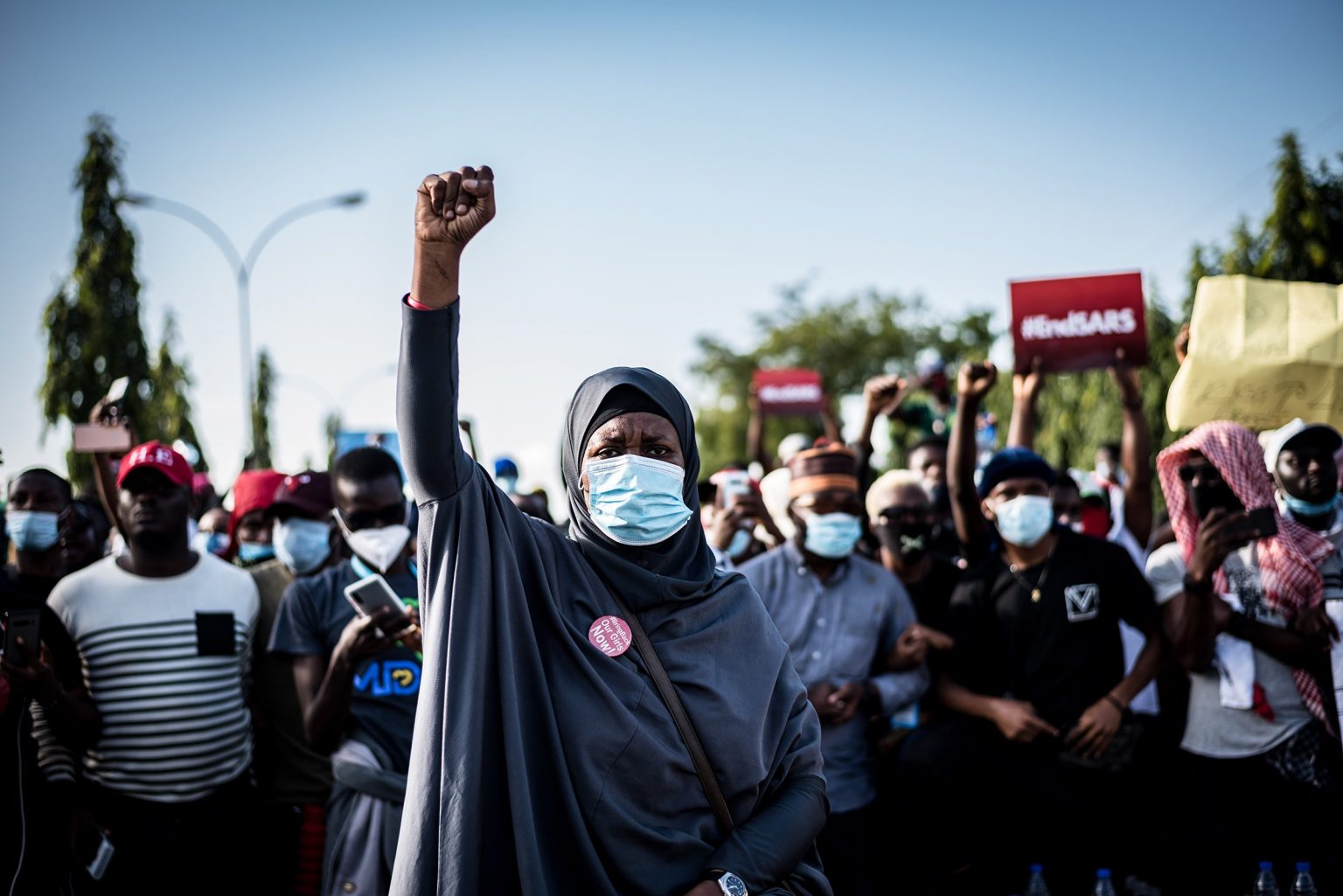
Author: Christopher Danladi | danladichristopher001@gmail.com
Amongst the many national issues that have bedeviled Nigeria, the #ENDSARS protests topped the charts making Nigeria to witness a groundswell of public outrage and mass demonstrations clamoring for an end to police brutality and a turnaround in the country’s policing. This led to the bloodbath that happened at the Lekki toll gate claiming hundreds of lives and wrongful incarceration of Nigerians with young people as prime targets. It has been four years since the massacre and indeed, only few of the many immediate demands put forth by the October 2020 #ENDSARS protesters was met—the disbandment of the Special Anti-robbery Squad by President Muhammadu Buhari, and a directive that state governors should empanel Judicial Panels of Inquiries to investigate incidents of police brutality in the different states of the country.
While this was viewed by the members of the international community as a step towards ending police brutality, the new policing units continued to reabsorb officers from the previous SARS units without any form of psychological examination and certification which is akin to pouring old wine into new bottles, where despite the change in container, the essence remains unchanged. Against these backdrops, this article provides a roadmap towards a lasting reform in Nigeria’s police institutions. I begin by providing a holistic overview of the origin of the movement, and a cycle of failed attempts of police reforms in Nigeria. Subsequently, with ingenious practical solutions, i aim at contributing to the ongoing discourse surrounding police reform in Nigeria.
THE #ENDSARS MOVEMENT: UNDERSTANDING THE PROBLEM
In its ideal sense, the motto “police is your friend” though not featured on the official police website, is a popular colloquialism that has been used by rank and file in police administration with its original intentions to foster police-community relationship and uphold the fundamental rights of all citizens. However, the reality faced by Nigerians contradicts this narrative, as a good number of individuals have been victimized and traumatized by police brutality, extortion and corruption. Reflecting on my personal experiences, I have had an encounter that challenged the very essence of “police is your friend” narrative.
It was on a journey back home from school that I found myself stranded in the middle of nowhere, our bus brought to a stop by a demand for a “gentle man handshake” from the police. The driver, steadfast in his refusal to succumb to extortion, stood his ground, leaving us at the mercy of the elements and the looming threat of danger. This was during the period of heightened tensions in Benue State, where clashes between herders and farmers were on the rise. As we stood stranded on the roadside, vulnerable and exposed, it became painfully clear to me that the very institution tasked with protecting us had become a threat to us. The catalyst for this harrowing experience? A mere 50 naira note—an insignificant sum that held the power to jeopardize our safety and well-being. In that moment, I grappled with the profound injustice of a system where corruption thrives unchecked, at the expense of the lives of innocent citizens. With many other citizens having similar experiences and even worse, the call for the dissolution of the notorious police unit (SARS) began as a call to end police brutality.
It began in December 2017 as a response to the illicit activities of the police with so many protest units all over the country spearheaded by young people who have been victims of abuse, extortion and extrajudicial killings. On the 21st of October 2020, the movement gained momentum as bloodied images and clips of Nigerians was all over the internet. These incidents of combined police and military onslaught ignited public anger and it was safe to say that the youth demographic had reached boiling point. Social media, particularly Twitter (now X) played a critical role in organizing and mobilizing protesters with hashtags like #Endpolicebrutality flying around the internet. Also, internet sensations and activists like Debo Adebayo, Folarin Falana, Aishatu Yesufu to mention but a few headed these protests and social media campaigns with five demands made to the government like;
- Disbandment of the Special Anti-robbery Unit
- Comprehensive police reform
- Justice for victims
- Compensation for victims’ families
- Psychological evaluation and retraining of police officers.
With the failure of the government to meet up with a good number of the abovementioned demands, most of the underlying causes of the protests still exist. This begs the question: what becomes of the rights of Nigerians to be free from harassment?
REASONS FOR THE FAILURE OF POLICE REFORMS IN NIGERIA
Police reform in Nigeria can be likened to the Einsteinian conception of insanity—doing the same thing over and over again and expecting a different result. Despite the significant impact of the #EndSARS movement, the government’s lackadaisical approach towards the unfulfilled demands of protester has hindered effective police reforms and provided an excuse for continued misconduct within the police force. The failure to address these issues has led to a colossal disappointment in achieving real change. They are listed below;
1. The Centralized Nature of The Nigerian Police: Nigeria was colonized by Great Britain which introduced the indirect rule system and a centralized policing system to ensure law and order. With the imposition of an alien system of policing, which is based on social contract theory and colonial creation, internal security is threatened. This is the reason for the abysmal ranking of Nigerian police in the World Internal Security Police Index (WISPI) 2016. Nigeria, ranking 127th out of the 127 countries under the index, shows that internal security and police responsiveness are enhanced when people own the social control system and shatters when another is imposed on them.
2. Political Interference: like oil and water, the intertwining of policing and politics remains irreconcilable and has steered the course of reform off course. An instance is seen in how the police were set against the #ENDSARS protesters at the Lekki Massacre just months after a review of the Nigerian Police Act, which review purported to curtail the powers of the police with the end goal of creating better police-community relations. Seeing that a genuine police reform aimed at achieving a community-police harmony will inevitably disrupt the political manipulation of policing institutions, the politicians who are responsible for implementing police reform, are thus incentivized to keep the police force dysfunctional and violent so that officers can serve as minions for their agenda.
3. Societal Normalization of Police Brutality and Corruption: The societal normalization of police brutality and corruption in Nigeria not only hinders police reforms but also deprives Nigerians of their constitutional rights to freedom of assembly, as guaranteed in Section 40 of the 1999 Constitution. This normalization perpetuates a culture where such misconduct is accepted or even expected, leading to a diminution of public outrage by citizens. As a result, the exercise of the fundamental right to peaceful assembly becomes fraught with risk, as individuals fear reprisals from law enforcement agencies. The chilling effect of this fear stifles dissent and undermines the democratic principles enshrined in the constitution.
STRATEGIES FOR A LONG LASTING POLICE REFORM IN NIGERIA
- Decentralization of Police authority: By decentralizing the Nigerian Police Force, the aim is to complement the operations of the central police force with localized policing efforts which involves devolving certain responsibilities, resources, and decision-making processes to state and community-level police departments. This approach is seen as a plausible solution to address the rising insecurity in Nigeria.
- Incorporation of Traditional Conflict resolution mechanisms: since Nigeria is a diverse country with a rich tapestry of cultures, incorporating traditional conflict resolution mechanisms is seen as a strategy for achieving long-lasting police reforms in Nigeria because it aims to address the deep-rooted issues within the Nigerian Police Force by integrating traditional methods of conflict resolution from pre-colonial societies like the Igbo community. By blending these traditional practices with modern policing structures, there is a potential to enhance accountability, community trust, and effectiveness within the police force.
- Rewarding Ethical Behavior: by Introducing incentives for ethical behavior and exemplary service within the police force, such as performance-based promotions, recognition programs, and commendations, it helps to reinforce positive conduct and professional standards among officers.
CONCLUDING THOUGHTS
While the EndSars protest glimmers like a beacon of hope through a tunnel of oppression and stands as a proof of the collective will of Nigerians to demand for an accountable society in the face of all forms of police brutality, there is still much to be done in order to deal with these issues and make sure that police reforms are in tandem with international best practices. It may be an uphill battle to get the desired results but with determination and perseverance, lasting reforms in Nigeria’s police institutions is within reach



